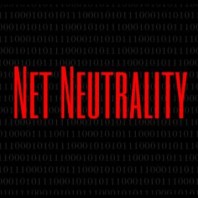You’ve heard it in the news recently. On December 14, the Federal Communications Commission voted to eliminate ‘Net Neutrality’.
What is ‘Net Neutrality’? The official definition, according to Wiki, is “the principle that internet providers must treat all data on the internet the same, and not discriminate or charge differently by user, content, website, platform, application, type of attached equipment, or method of communication.”
Put simply, ISP’s (Internet Service Providers) are not able to block, slow down or charge money for specific websites and online content.
But now that this rule has been discarded, what could this mean for you and your business? According to a CDP (Communications Deployment Partners) Newsletter, here are some possibilities:
- It gives ISP’s the ability to slow down certain applications/online services.
- À la carte pricing becomes an option as ISPs are able to charge for things such as streaming a live video or handling voice over the internet.
- There is a possibility for mergers/acquisitions, allowing the large companies to include these “À la carte” items in their services. Ultimately, ending competition and providing less service options.
- Larger businesses could pay more to be found by search engines, leaving the smaller/local businesses in the dust.
As a reminder, though the repeal of ‘Net Neutrality’ has already taken place, what we just mentioned above has not. These are possibilities for ISP’s as they are no longer limited by the aforementioned restrictions.
How did we live without ‘Net Neutrality’?
The rules for this internet regulation went into effect in 2015, as we know, several years after the internet began thriving in our world today. So how did we survive without it?
According to Ajit Pai, the chairman of the F.C.C., before these restrictions were put into place, ISP’s had not engaged in these practices (Kang 2017). Net Neutrality was never needed because service providers were not engaging in blocking sites, slowing down speeds or charging money for specific content. In a speech made in April 2017 at the Newseum, Pai claims, “It’s basic economics, the more heavily you regulate something, the less of it you’re likely to get (Collins 2017). This would imply that the implementation of this bill caused more problems than it had before it became law.
Also, according to Pai, the internet has already changed. Many larger internet companies already “control much of the online infrastructure, from app stores to operating systems to cloud storage to nearly all of the online ad business” (Collins 2017).
The question remains, does repealing the 2015 bill of ‘Net Neutrality’ change anything, or do we simply exist in the world prior to the bill as we always have? One thing to keep in mind is, once a bill is repealed in this manner, it could take weeks, even months before you see any type of change (Kang 2017). Also, as there are always two sides to this type of situation, there are people in the F.C.C. working to reverse this repeal, putting this bill back into full effect.
References:
Collins, Keith. “Why Net Neutrality Was Repealed and How It Affects You.” New York Times, 14 Dec. 2017, www.nytimes.com/2017/12/14/technology/net-neutrality-rules.html.
Kang, Cecilia. “F.C.C. Repeals Net Neutrality Rules.” New York Times, 14 Dec. 2017, www.nytimes.com/2017/12/14/technology/net-neutrality-repeal-vote.html.
Kang, Cecilia. “What’s Next After the Repeal of Net Neutrality.” New York Times, 15 Dec. 2017, www.nytimes.com/2017/12/15/technology/net-neutrality-repeal.html.
“Net Neutrality.” Wikipedia, 21 Dec. 2017, simple.wikipedia.org/wiki/Net_neutrality.


1650 Manheim Pike, Suite 204, Lancaster, PA 17601
(717) 509-4410
INFORMATION TECHNOLOGY SERVICES